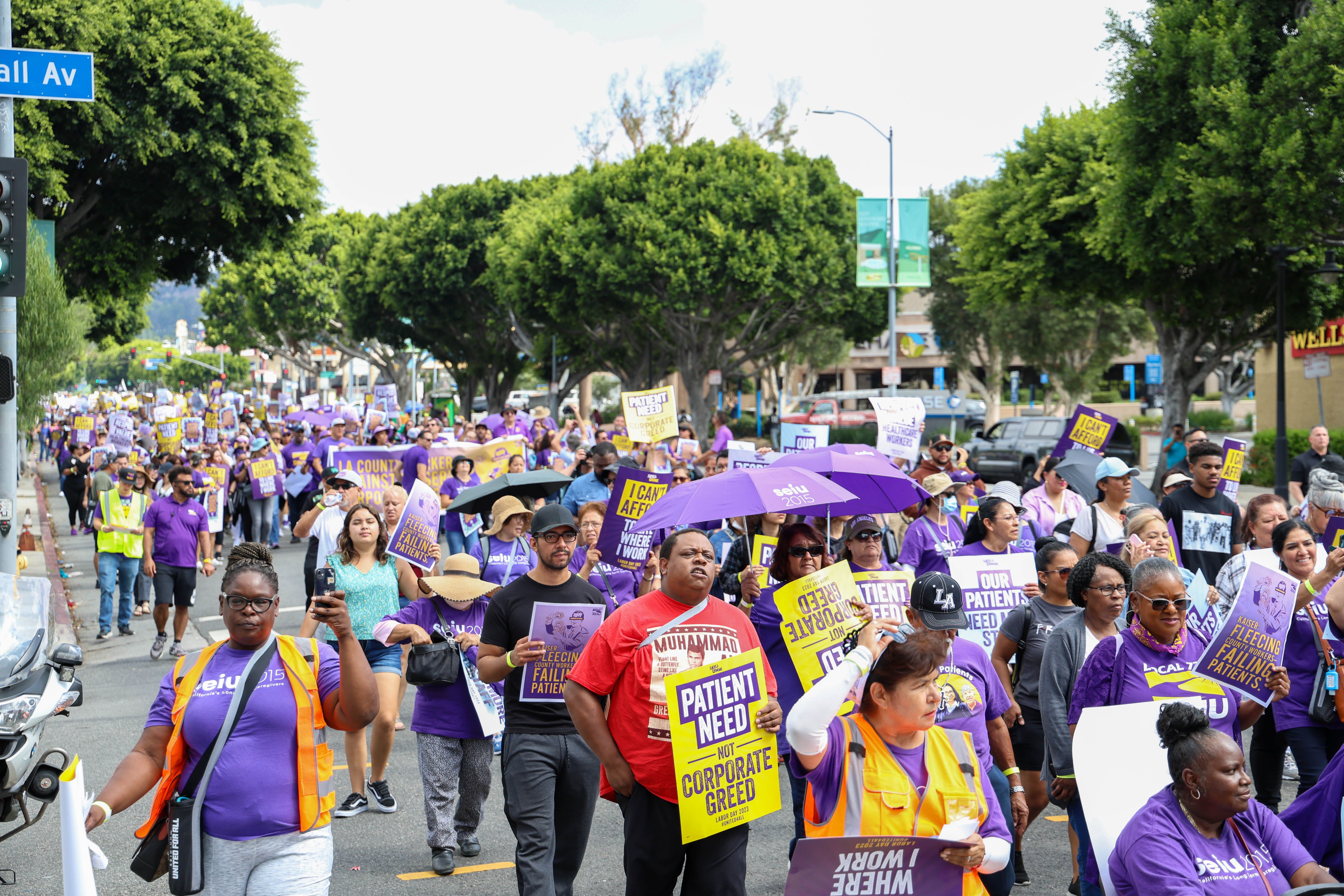Kaiser Permanente, unions reach tentative deal
More than 75,000 employees engaged in what labor leaders called the largest healthcare worker strike in American history last week.
Union leaders and Kaiser Permanente say they have reached a tentative deal on a new contract.
Union leaders say they have reached a tentative agreement with Kaiser Permanente on a new contract. The deal comes a week after more than 75,000 workers went on strike. (Photo: SEIU-UHW)

The Coalition of Kaiser Permanente Unions made the announcement Friday morning. Union leadership hailed it as an "historic agreement" with higher wages and provisions to improve staffing levels. The deal still requires ratification from union members.
“The frontline healthcare workers of the Coalition of Kaiser Permanente Unions are excited to have reached a tentative agreement with Kaiser Permanente as of this morning. We are thankful for the instrumental involvement of Acting US Labor Secretary Julie Su,” the Coalition said in a statement Friday morning.
The SEIU-United Healthcare Workers West also shared the news of the tentative deal in a post on X, the social media platform formerly known as Twitter.
Kaiser Permanente also posted a statement on X confirming that a tentative agreement had been reached.
"We are excited to have reached a tentative agreement with the frontline health care workers of the @UnionCoalition this morning. We are thankful for the instrumental involvement of Acting U.S. Labor Secretary @ActSecJulieSu," Kaiser said in the statement.
The tentative agreement comes a week after more than 75,000 union workers, including nurses, pharmacists, radiology technologists, and others, walked out last week. The Coalition had also warned of the possibility of a second strike in November.
The Coalition said the new deal includes wage increases of 21% over the four years of the contract.
The deal also establishes a new minimum wage for workers across the system, although it varies depending on the market. The minimum wage will be $25 per hour in California and $23 per hour in Kaiser's other markets.
Kaiser, based in Oakland, Calif., operates 39 hospitals and more than 600 other medical offices in several states. Kaiser’s health plan serves nearly 13 million members.
Union leaders said they were seeking better compensation and wanted Kaiser to make stronger commitments to address staffing shortages. Union leaders said better staffing is needed to protect patient safety. The unions also sought protections against outsourcing and subcontracting.
The Coalition said there are provisions in the agreement to address staffing shortages, and the deal would include protections against outsourcing of jobs.
“Millions of Americans are safer today because tens of thousands of dedicated healthcare workers fought for and won the critical resources they need and that patients need,” Caroline Lucas, executive director of the Coalition of Kaiser Permanente Unions, said in the statement. “This historic agreement will set a higher standard for the healthcare industry nationwide.”
Kaiser Permanente said it had been offering raises as well as increases in minimum wages across the system, along with strong benefits.
Union workers will begin voting to ratify the agreement starting Oct. 18. The Coalition’s contract expired Sept. 30, and unions and Kaiser have been negotiating a new pact since April.
Hospitals have seen other high-profile labor battles recently.
In January, thousands of nurses in New York went on strike before reaching an agreement on a contract. About 15,000 Minnesota nurses took part in a three-day strike in September 2022, and they threatened a second walkout in December, but labor and management agreed on a deal.
Telehealth faces a looming deadline in Washington | Healthy Bottom Line podcast
February 12th 2025Once again, the clock is ticking on waivers for telemedicine and hospital-at-home programs. Kyle Zebley of the American Telemedicine Association talks about the push on Congress and the White House.